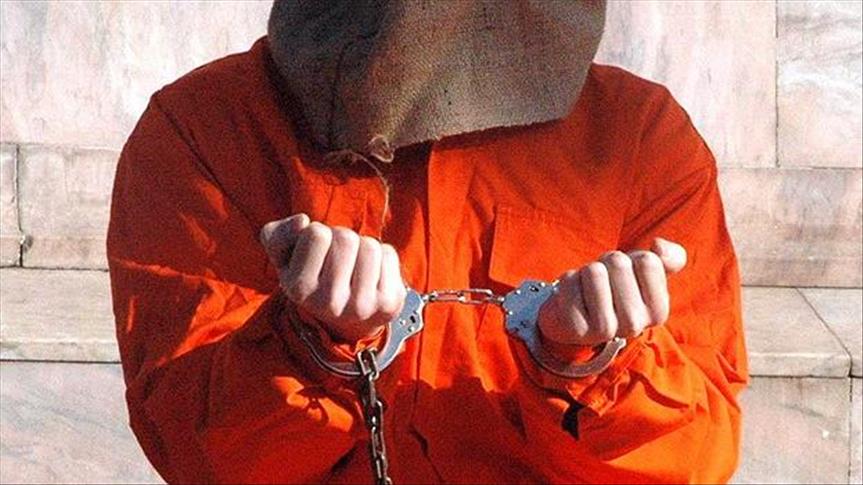Thailand: Report on torture by junta ‘still unverified’
Responds to criticisms over forced cancelation of seminar at which Amnesty International torture report was to be released
 file photo
file photo
Banghok
By Max Constant
BANGKOK
Thailand’s military government has responded to international criticisms over the forced cancelation of a seminar on the “routine” use of torture by security forces by insisting that information contained in a report planned to be released at the event “is yet to be verified”.
“The government welcomes all information on this matter, as it would help the work of the government in the area of human rights and in ensuring transparency, fairness and justice through our judicial process,” the foreign ministry said in a statement Thursday, without providing a reason for the cancelation.
“However, the information contained in the report is yet to be verified, especially for the cases in which the alleged victims remain anonymous. Relevant authorities are currently in the process of examining its accuracy,” it added.
On Wednesday, Thai police forced the cancellation of a human rights seminar organized by Amnesty International during which a report denouncing reported torture under the military regime was to be released.
Police officers threatened to have the foreigners due to speak at the event arrested on the grounds that they were not holding work permits and were thus not entitled to speak publicly.
The three speakers included Rafendi Djamin, Amnesty International director for Southeast Asia and the Pacific, Yubal Ginbar, a lawyer working for the rights group, and Laurent Meillan, acting Southeast Asia representative for the United Nations High Commission on Human Rights.
After the cancellation, Meillan expressed dismay over the Thai authorities’ attitude on his Facebook page.
“I regret that I could not speak at the public launch of an Amnesty report on torture,” he wrote. “The incident is another striking illustration of a new pattern of harassment of human rights defenders documenting torture in Thailand.”
In Thursday’s statement, the Thai government said, “perpetrators of violations shall be brought to justice, if acts of torture and ill-treatment were actually committed against civilian by authorities as alleged in the report.”
It also underlined that a draft law on the prevention and suppression of torture and enforced disappearances had been approved by the cabinet in May.
“This will strengthen our compliance with the Convention against Torture,” it said, referring to the UN convention to which Thailand has been party since 2007.
In a press statement issued early Wednesday to announce the report’s release, Djamin said, “Thailand’s military rulers have allowed a culture of torture to flourish, where there is no accountability for the perpetrators and no justice for the victims.”
The report, titled Make him Speak by Tomorrow: Torture and Other Ill-treatment in Thailand, documents 74 cases of alleged torture and ill-treatment at the hands of soldiers and the police “including beatings, suffocation by plastic bags, strangling by hand or rope, water boarding, electric shocks of the genitals, and other forms of humiliation”.
In one of the cases detailed in the report, a victim named “Tul” (not his real name) described the torture allegedly inflicted upon him by the military while he was detained in an undisclosed location shortly after the May 22, 2014 coup which brought the junta to power.
“They put a plastic bag on my head until I fainted, and then poured a bucket of cold water on me,” he told Amnesty International.
“They applied electro-shock to my penis and chest. I was restrained, my legs tied, and my face covered with tape and a plastic bag,” he added.
Amnesty International also described as problematic the fact Thai judges can decide to rely in court on “evidence” obtained through torture.
“Most victims are too afraid to speak out. When they come forward to complain, the courts tend to ignore them. And yet, the same courts are willing to accept coerced confessions, even after they are retracted,” Djamin said in the statement.
The rights group recommended that Thailand’s government end “unaccountable detention”, criminalize torture and ban the use of “evidence” obtained through torture in order to “address the legal and institutional shortcomings that enable torture”.
Junta chief-cum-prime minister Gen. Prayuth Chan-Ocha said last May that torture would be made a criminal offense under Thai law to fulfill the country’s obligations under the UN Convention against Torture.
The military, however, has appeared to be on the defensive every time accusations of torture are leveled against its personnel.
Last July, three civil society activists who wrote a report on torture in military camps in the country’s Muslim south were formally charged with defamation and violation of the computer crime act after the military filed a legal case against them.
Anadolu Agency website contains only a portion of the news stories offered to subscribers in the AA News Broadcasting System (HAS), and in summarized form. Please contact us for subscription options.







